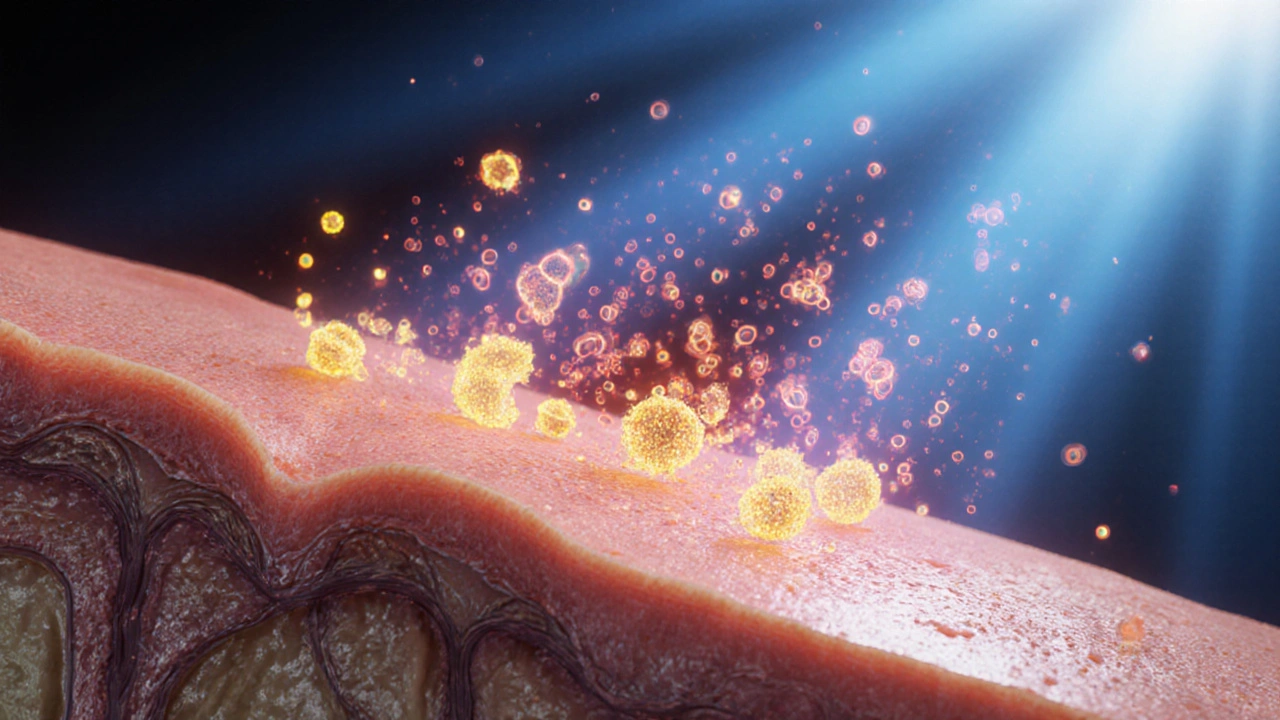Sunburn: Causes, Symptoms, and How to Treat It
When dealing with Sunburn, the painful reddening of skin caused by excessive ultraviolet (UV) exposure. Also known as solar burn, sunburn occurs when UV radiation overwhelms the skin's natural defenses, breaking down DNA and triggering inflammation. UV radiation high‑energy light from the sun that penetrates the epidermis and damages skin cells is the primary culprit, and its intensity depends on time of day, altitude, and reflective surfaces. Understanding this link helps you see why quick action after exposure matters.
How to Keep Sunburn at Bay
Preventing a burn starts with a barrier. Sunscreen a lotion, spray, or stick containing UV‑blocking chemicals or minerals absorbs or reflects UV rays, reducing the skin’s damage. Choose a broad‑spectrum product with SPF 30 or higher, apply it 15 minutes before heading outdoors, and reapply every two hours or after swimming. Wearing protective clothing, wide‑brimmed hats, and seeking shade during peak sun hours creates multiple layers of defense, making it harder for UV radiation to reach the skin. The simple rule is: block, cover, and reapply.
Even with the best prevention, a burn can still happen. The first step after you notice redness is to cool the area. A cool (not icy) shower or compress lowers skin temperature and eases pain. Moisturizing with aloe‑gel or a fragrance‑free lotion restores hydration and soothes inflammation. For deeper burns, over‑the‑counter pain relievers like Ibuprofen a non‑steroidal anti‑inflammatory drug that reduces pain and swelling (found in Motrin) or acetaminophen can be taken as directed. When itching becomes a problem, antihistamines such as Phenergan an antihistamine often used to relieve itching and allergic reactions may help, as highlighted in our comparison articles. In severe cases, a mild topical steroid can calm intense inflammation, but always check with a healthcare professional first.
These steps turn a painful experience into a manageable one. Below you’ll find detailed guides on specific medications, skin‑care ingredients that fade age spots, and how to treat related conditions like skin chafe—each offering practical advice you can apply right after a sunburn. Armed with the right knowledge, you’ll know exactly what to do, whether you’re heading to the beach or just stepping out for a quick run.
Sunburn and Nutrition: How Your Diet Protects Your Skin
Learn how specific nutrients and daily foods boost skin resilience against sunburn, with practical meal plans, hydration tips, and a clear FAQ.
Read more
